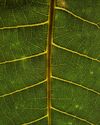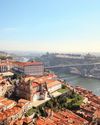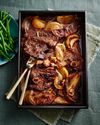
It’s late at night and The Weekly office is empty when a call from Paris comes through on an encrypted carrier. The face of a handsome Italian man in dark sunglasses flashes on the screen. Corrado Catesi started his career in the special unit of Italy’s Carabinieri, tasked with protecting art. After the 2009 earthquake, he was dispatched to the Abruzzo region where he swooped into damaged churches and cultural buildings to retrieve oil paintings and artefacts before they were buried in rubble forever. He now works for Interpol at the intersection where high art meets hard crime.
“People think that it’s not a serious crime,” Corrado says. “Police and customs, if they [have to investigate] a drug crime or a cultural crime they will decide on the drug crime because it appears to be strongest, but it’s not true.”
In 1995, Interpol established a virtual vault of missing works of art to track stolen masterpieces and ancient treasures being trafficked all over the world. It has become a powerful weapon against organised crime and terrorism, and it is the reason Corrado is calling tonight.
“Thanks to the Interpol database, we have recovered several items, not only stolen objects of art but also cultural items. A Leonardo. A Michelangelo,” he says, over a patchy phone connection. “The Interpol database was recognised by the monitoring team of the UN Security Council as a key tool to fight the illicit traffic [of cultural items] that gives terrorists the possibility to gain income.”
This story is from the {{IssueName}} edition of {{MagazineName}}.
Start your 7-day Magzter GOLD free trial to access thousands of curated premium stories, and 9,000+ magazines and newspapers.
Already a subscriber ? Sign In
This story is from the {{IssueName}} edition of {{MagazineName}}.
Start your 7-day Magzter GOLD free trial to access thousands of curated premium stories, and 9,000+ magazines and newspapers.
Already a subscriber? Sign In

Hitting a nerve
Regulating the vagus nerve with its links to depression, anxiety, arthritis and diabetes - could aid physical and mental wellbeing.

Take me to the river
With a slew of new schedules and excursions to explore, the latest river cruises promise to give you experiences and sights you won’t see on the ocean.

The last act
When family patriarch Tom Edwards passes away, his children must come together to build his coffin in four days, otherwise they will lose their inheritance. Can they put their sibling rivalry aside?

MEET RUSSIA'S BRAVEST WOMEN
When Alexei Navalny died in a brutal Arctic prison, Vladimir Putin thought he had triumphed over his most formidable opponent. Until three courageous women - Alexei's mother, wife and daughter - took up his fight for freedom.

The wines and lines mums
Once only associated with glamorous A-listers, cocaine is now prevalent with the soccer-mum set - as likely to be imbibed at a school fundraiser as a nightclub. The Weekly looks inside this illegal, addictive, rising trend.

Jenny Liddle-Bob.Lucy McDonald.Sasha Green - Why don't you know their names?
Indigenous women are being murdered at frightening rates, their deaths often left uninvestigated and widely unreported. Here The Weekly meets families who are battling grief and desperate for solutions.

Growing happiness
Through drought flood and heartbreak, Jenny Jennr's sunflowers bloom with hope, sunshine and joy

"Thank God we make each other laugh"
A shared sense of humour has seen Aussie comedy couple Harriet Dyer and Patrick Brammall conquer the world. But what does life look like when the cameras go down:

Winter baking with apples and pears
Celebrate the season of Australian apples and pears with these sweet bakes that will keep the midwinter blues away.

Budget dinner winners
Looking for some thrifty inspiration for weeknight dinners? Try our tasty line-up of low-cost recipes that are bound to please everyone at the table.